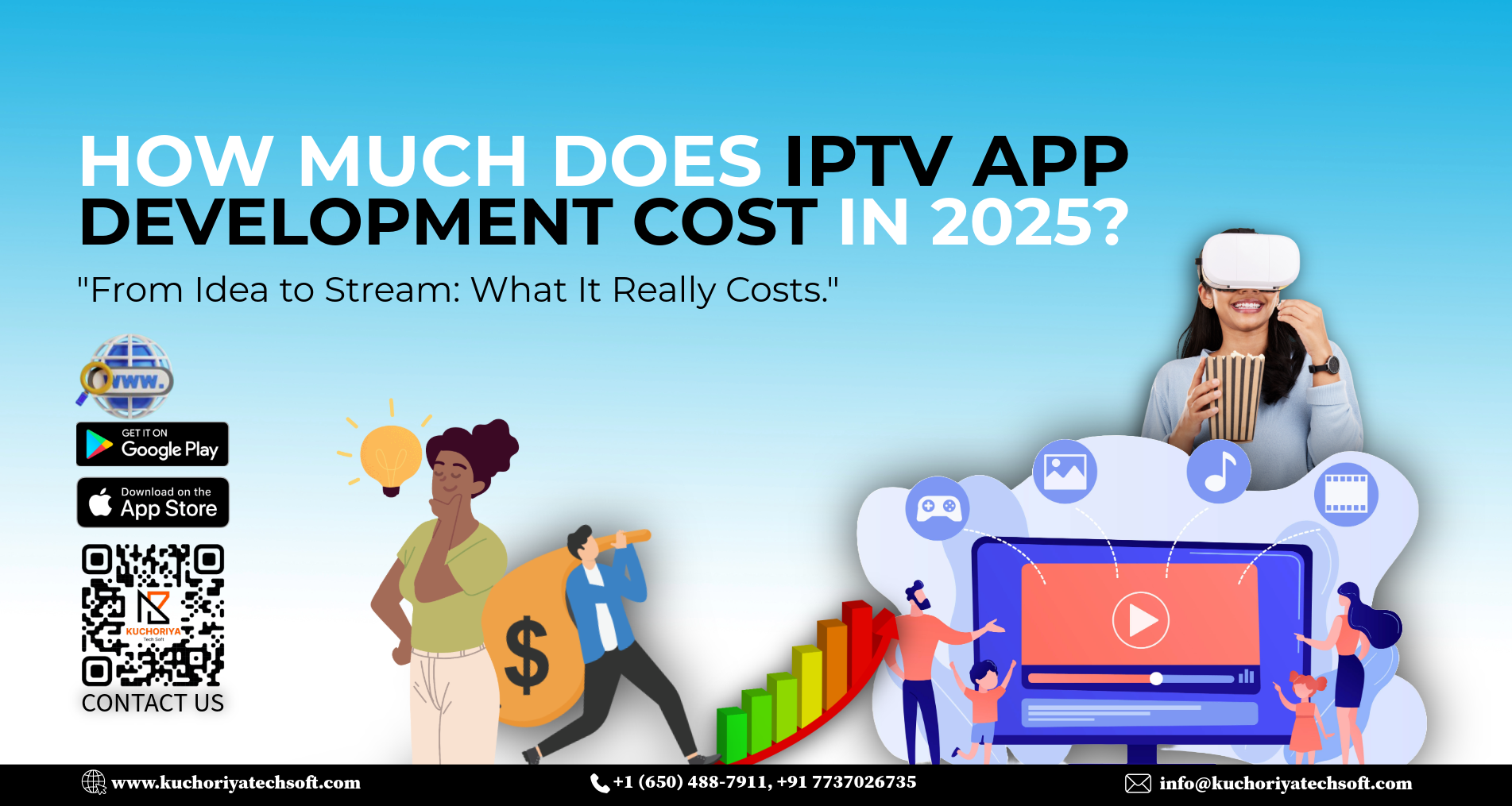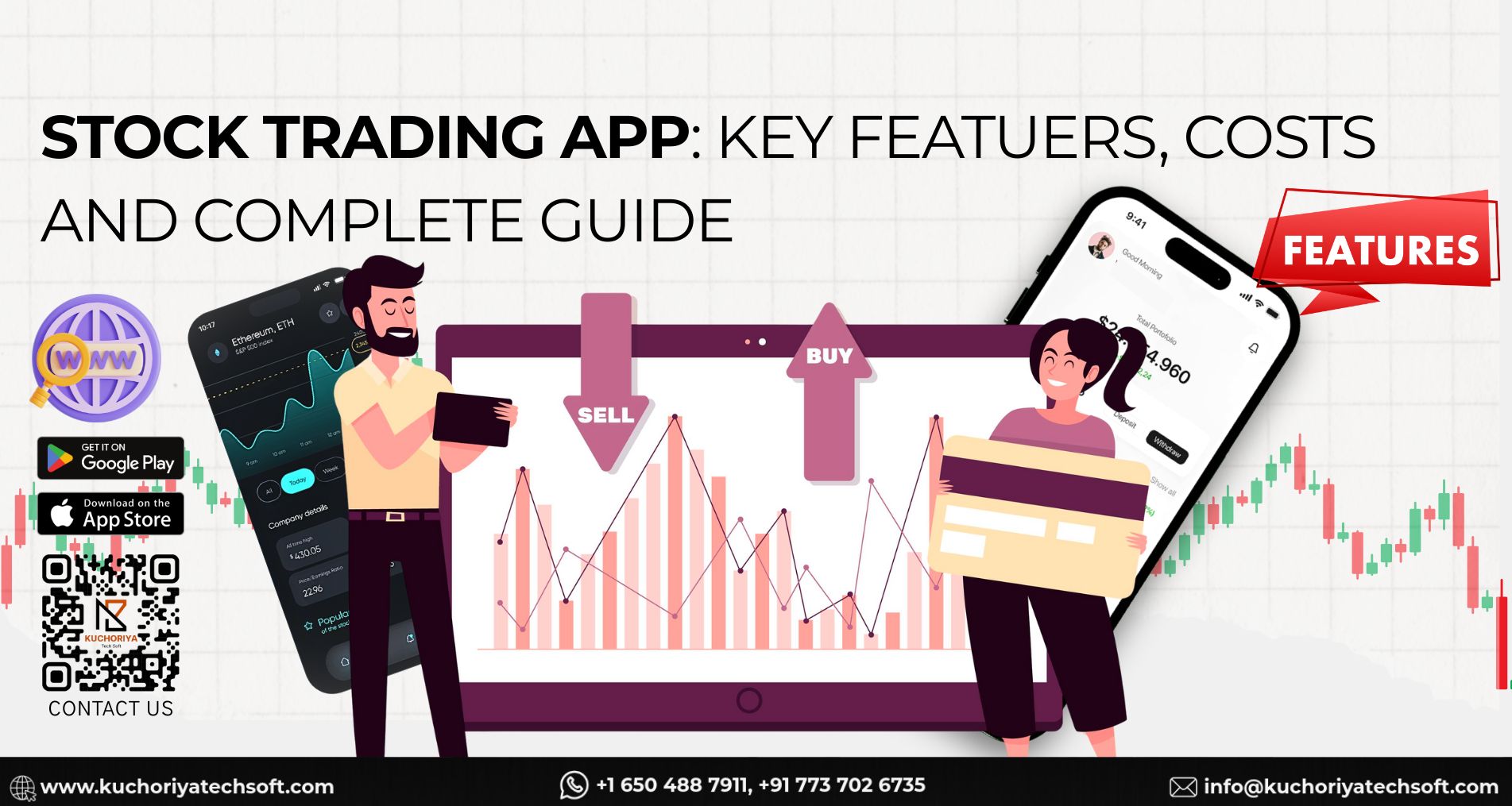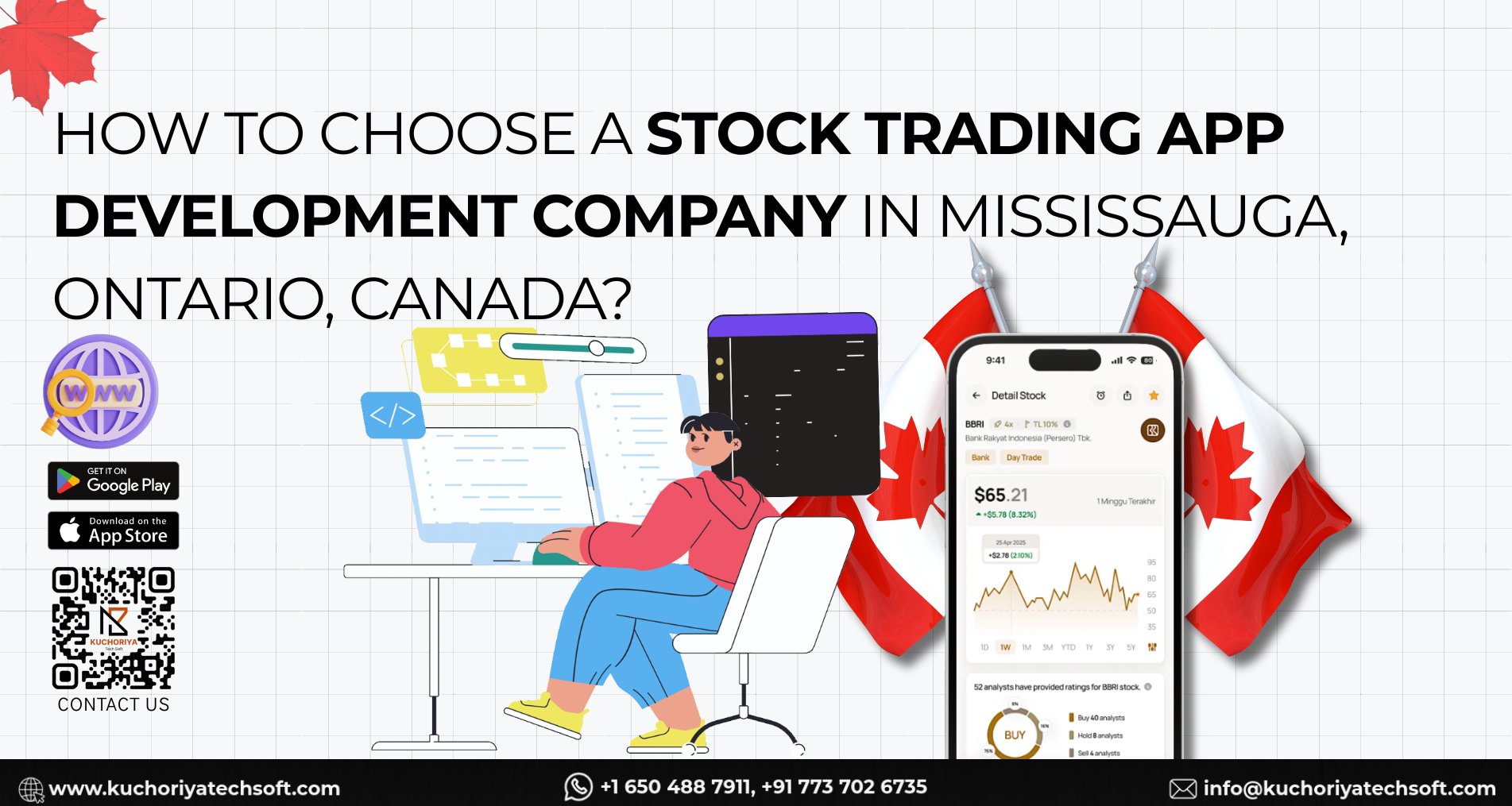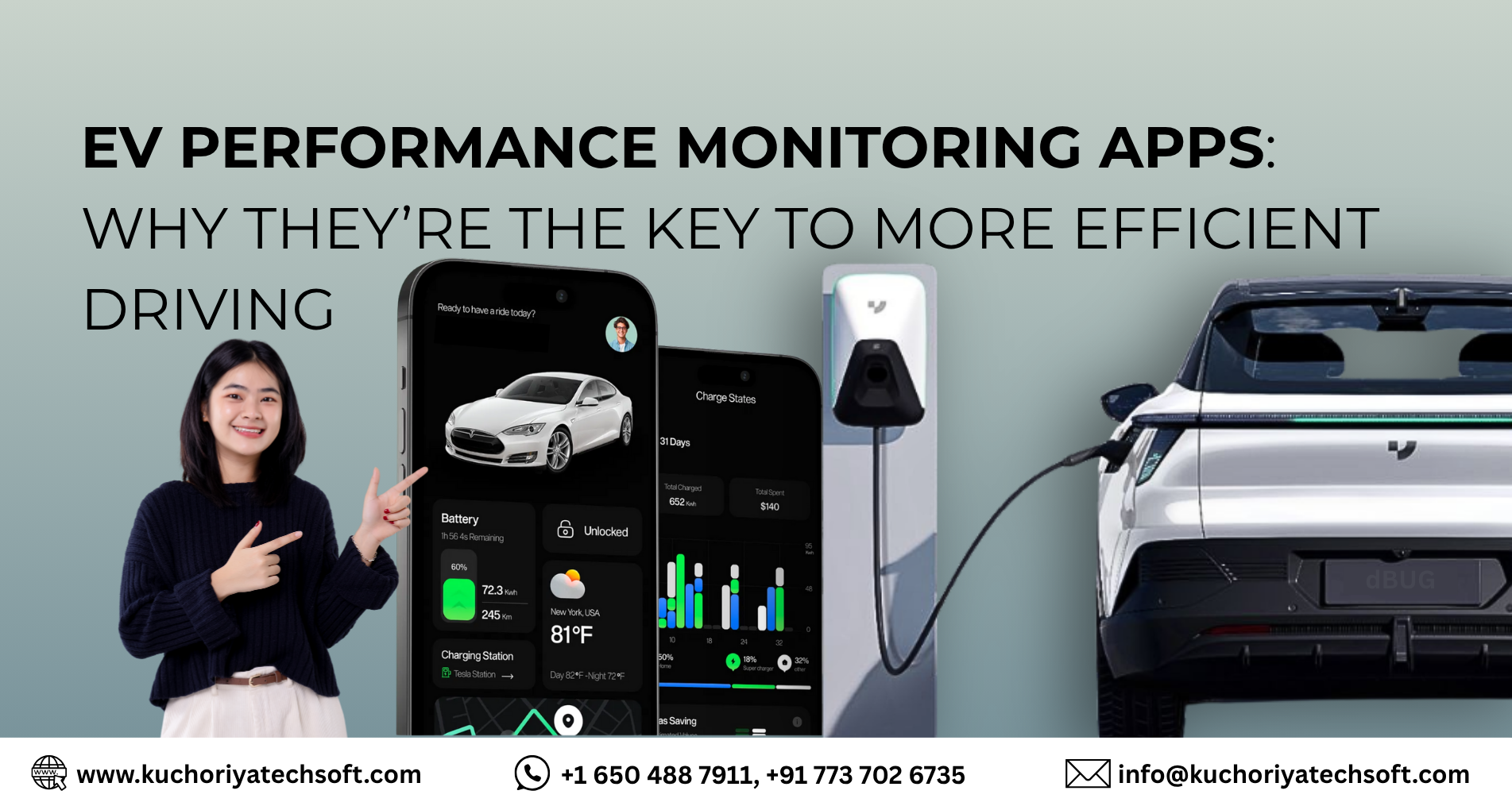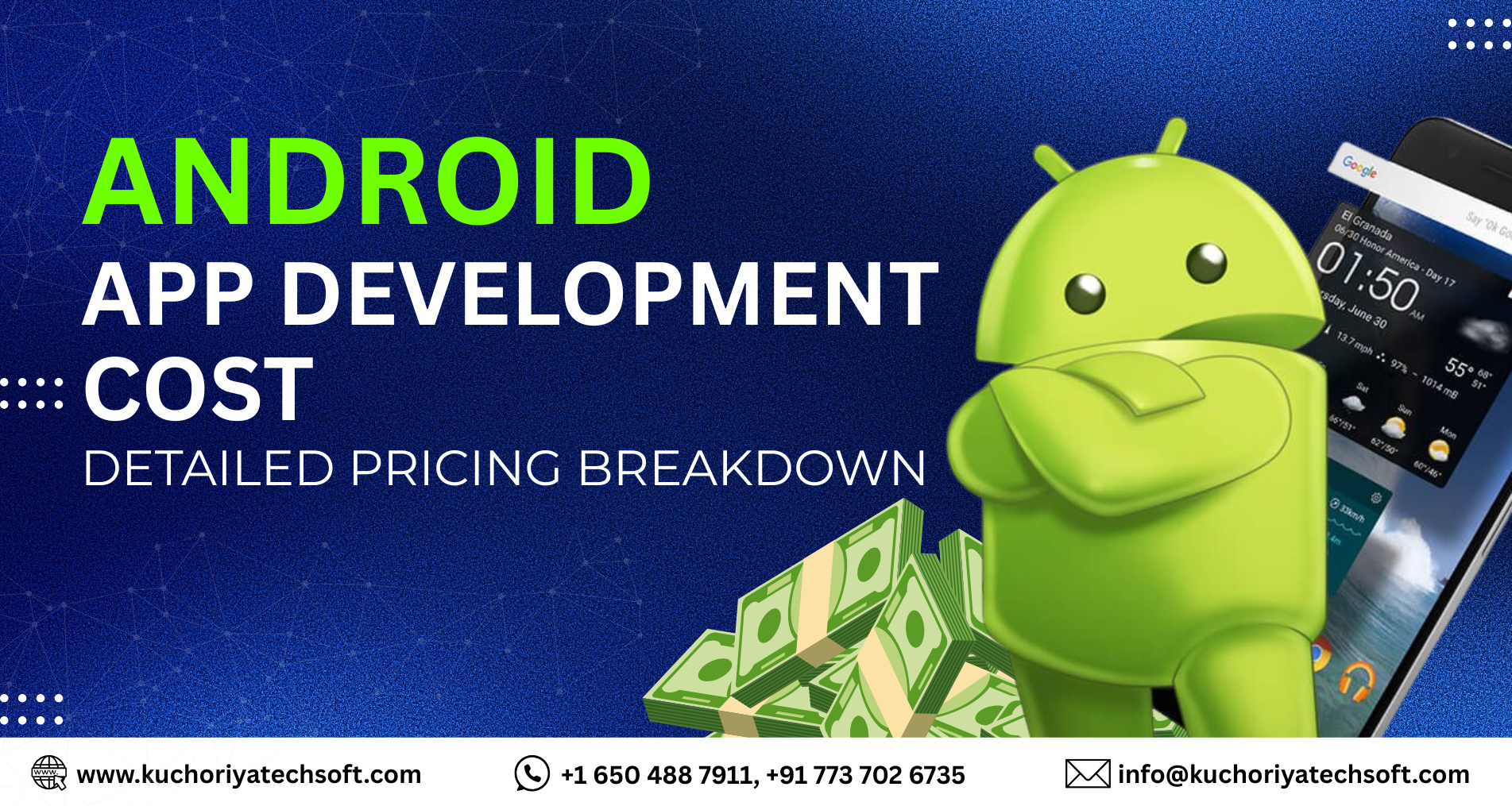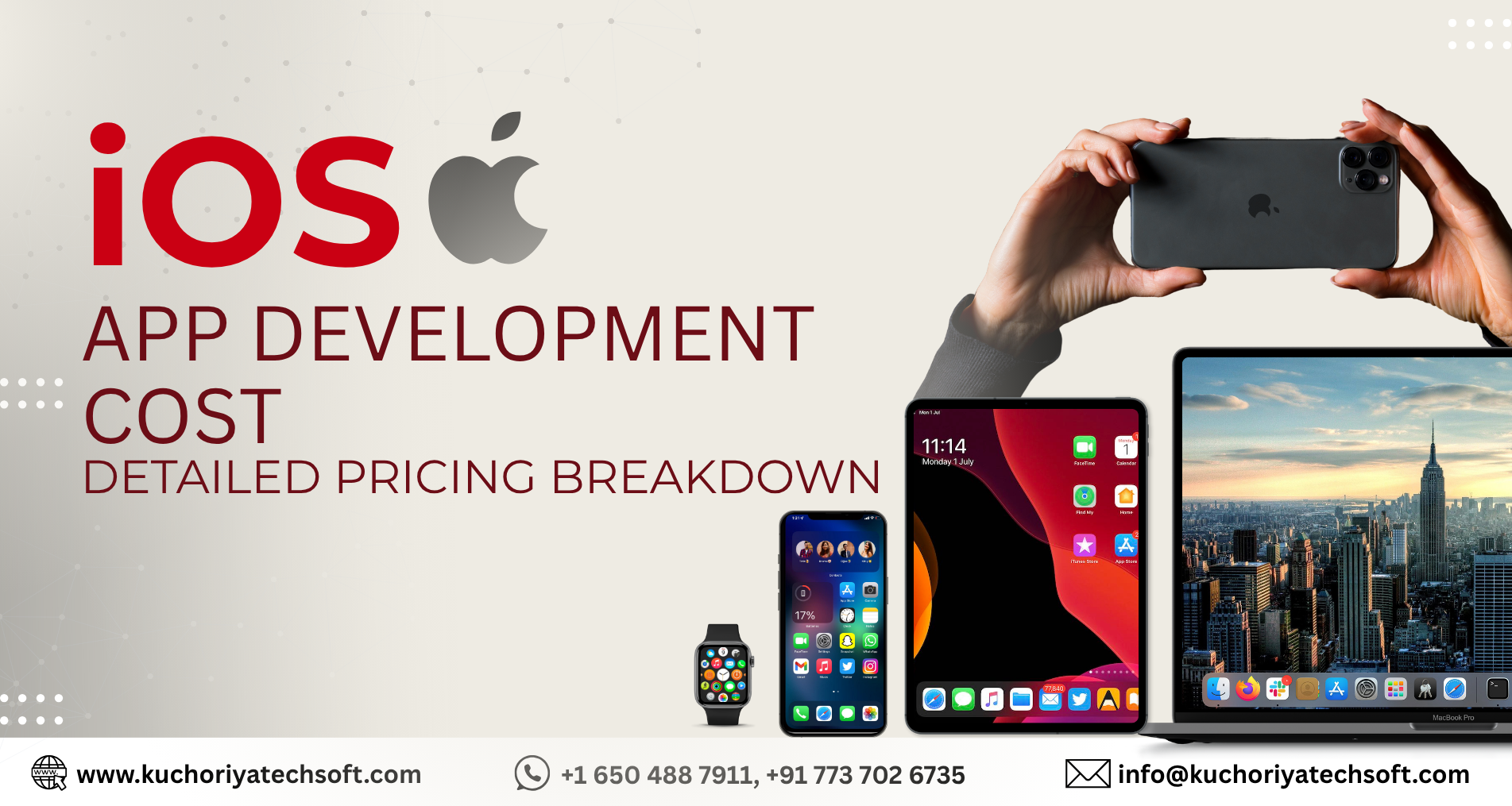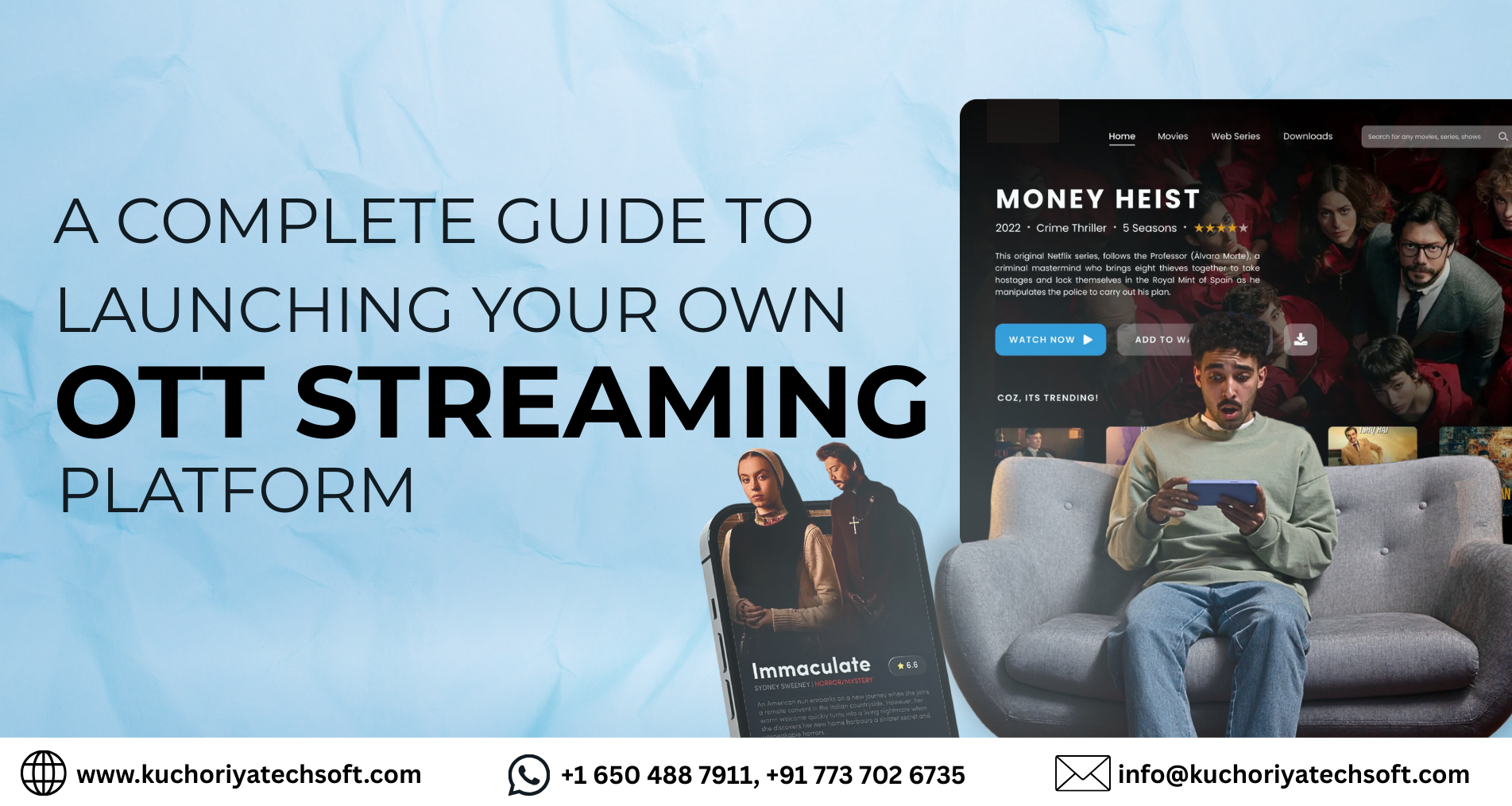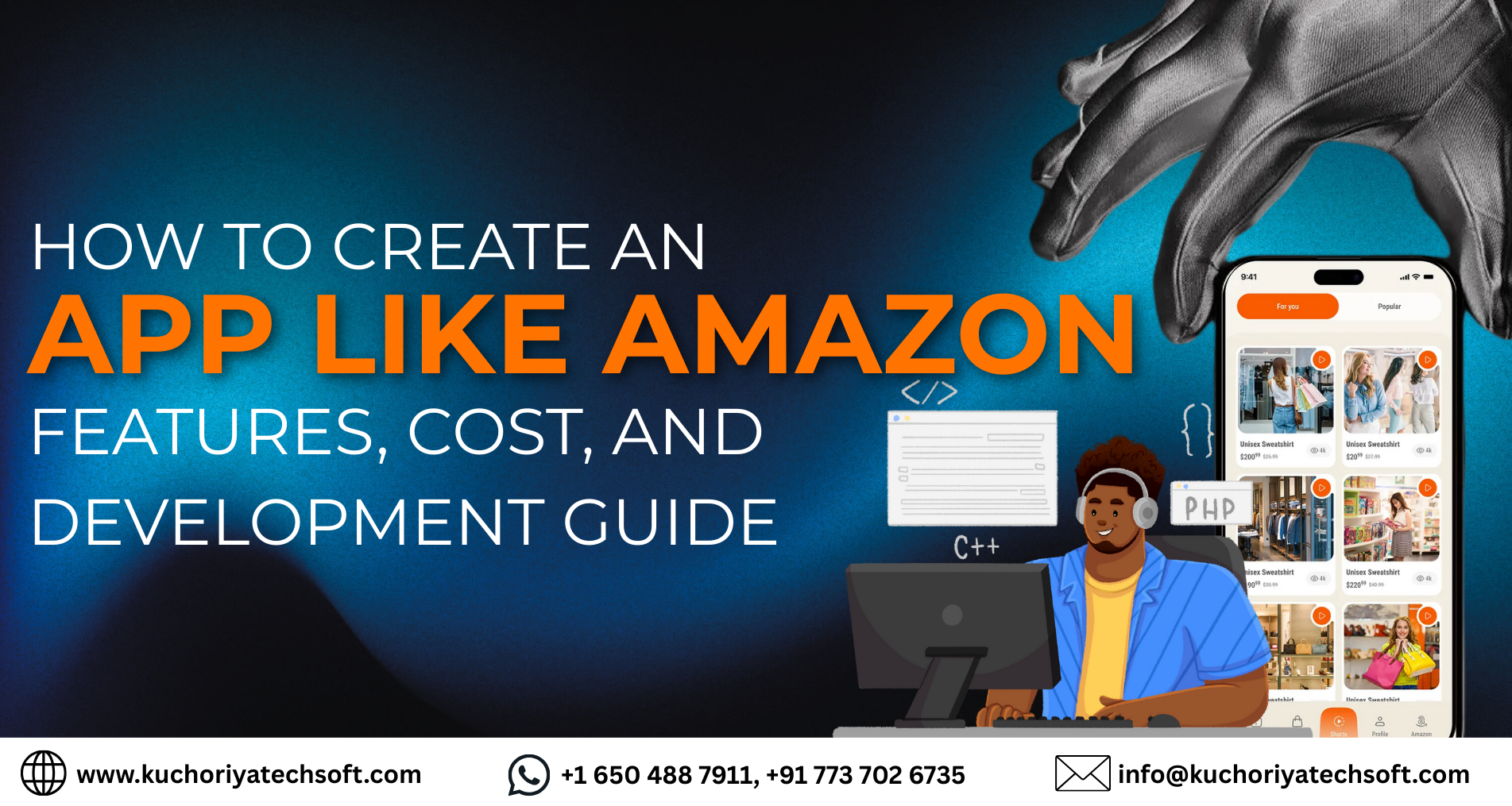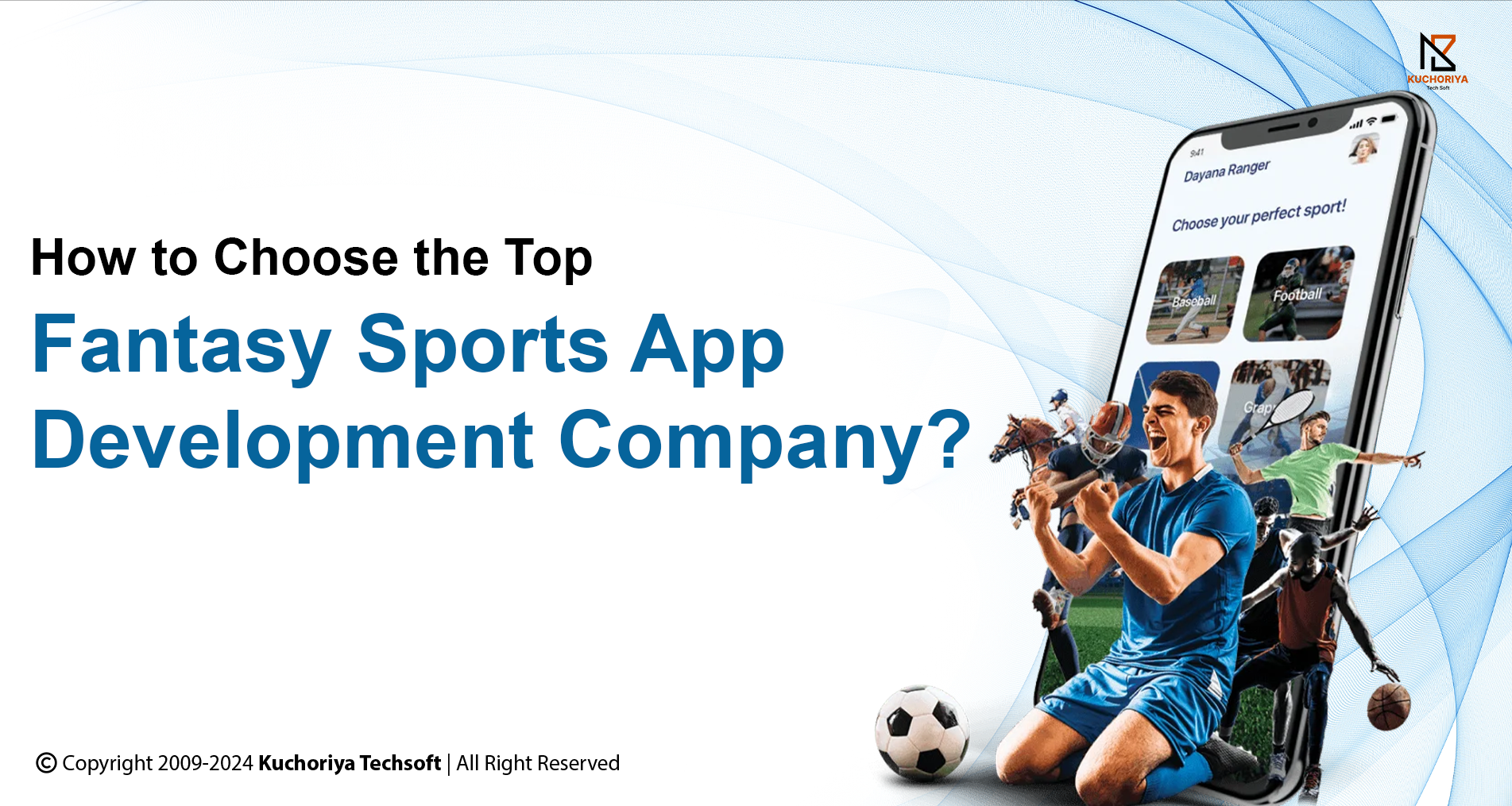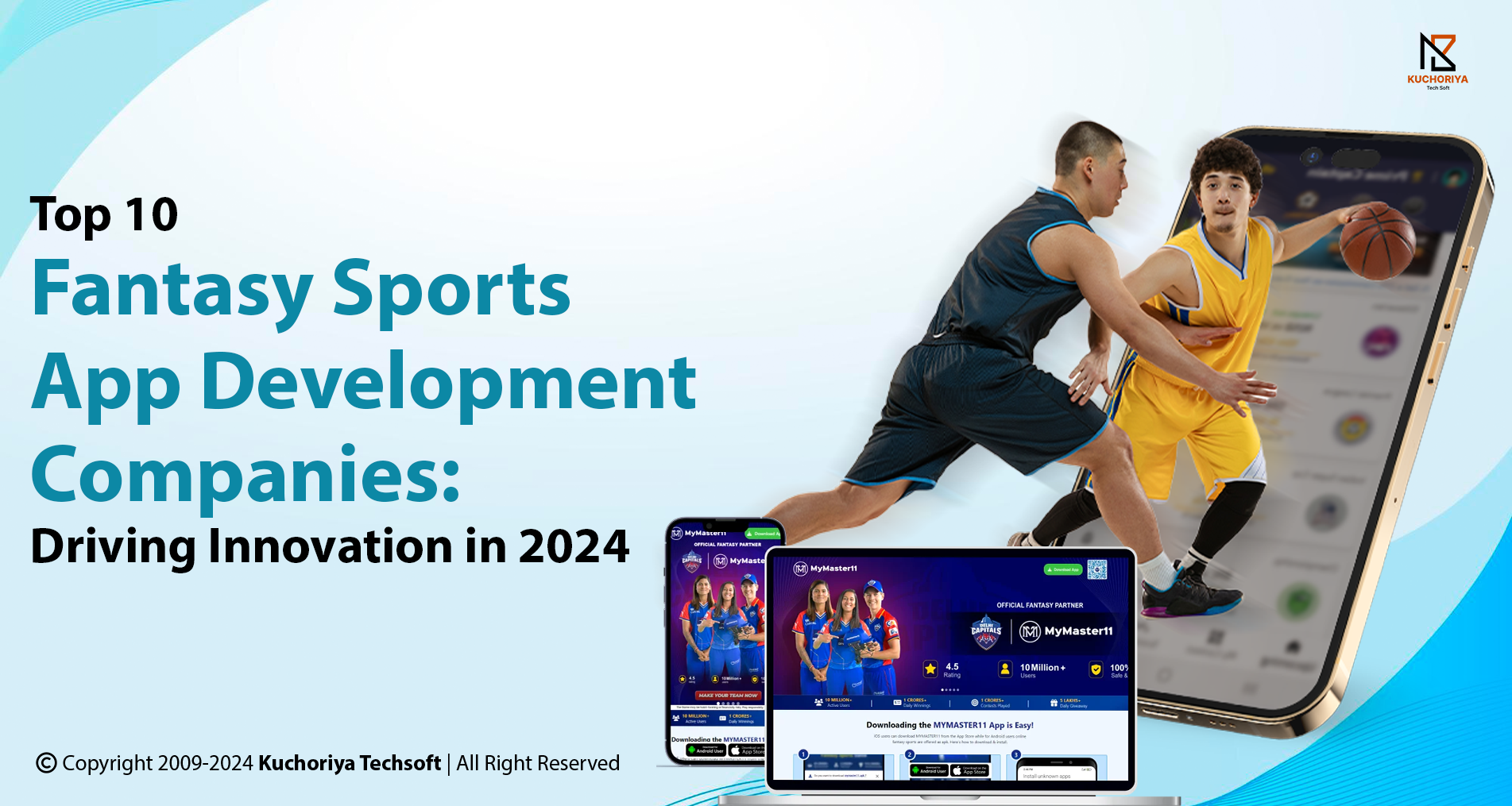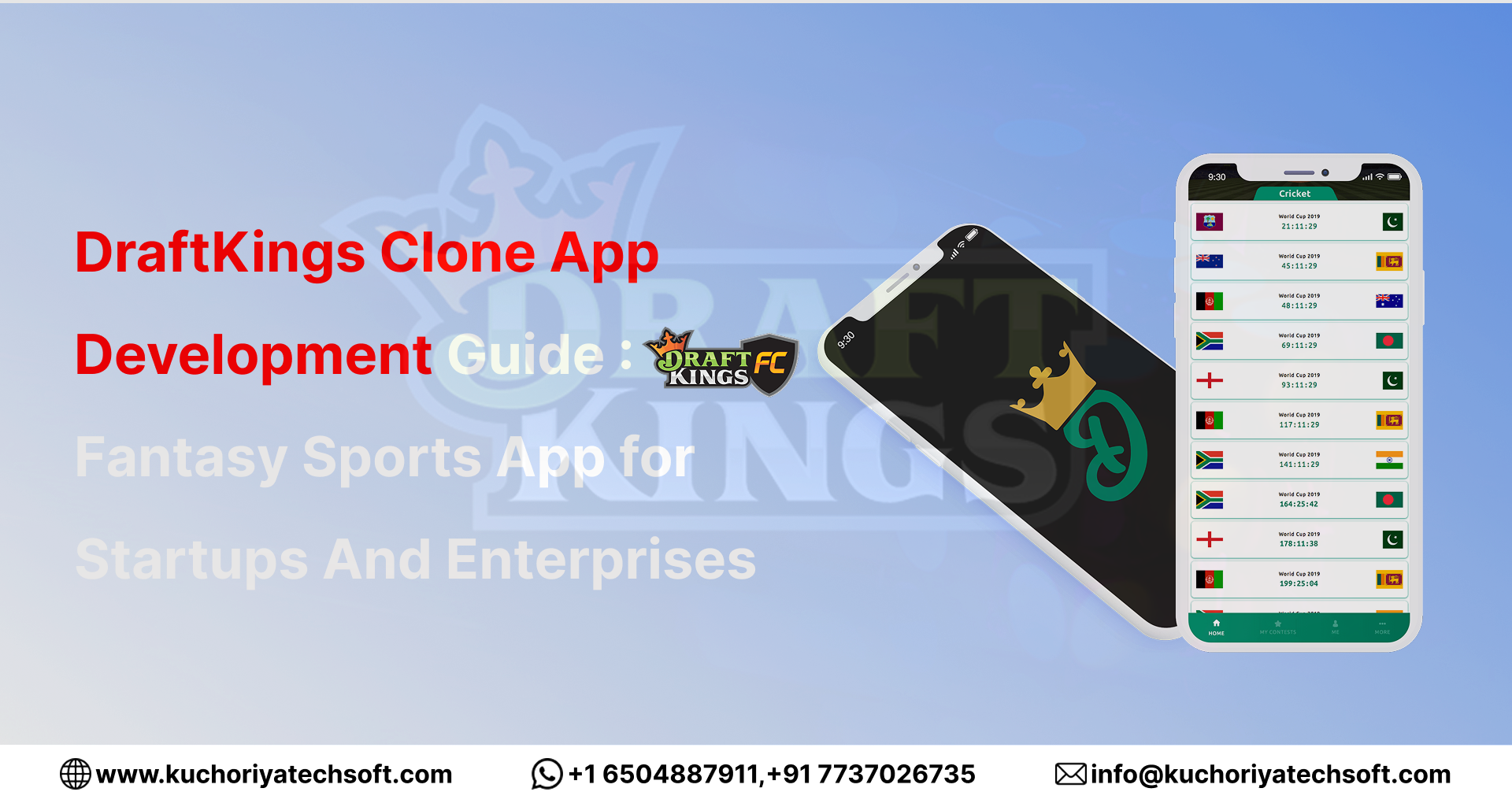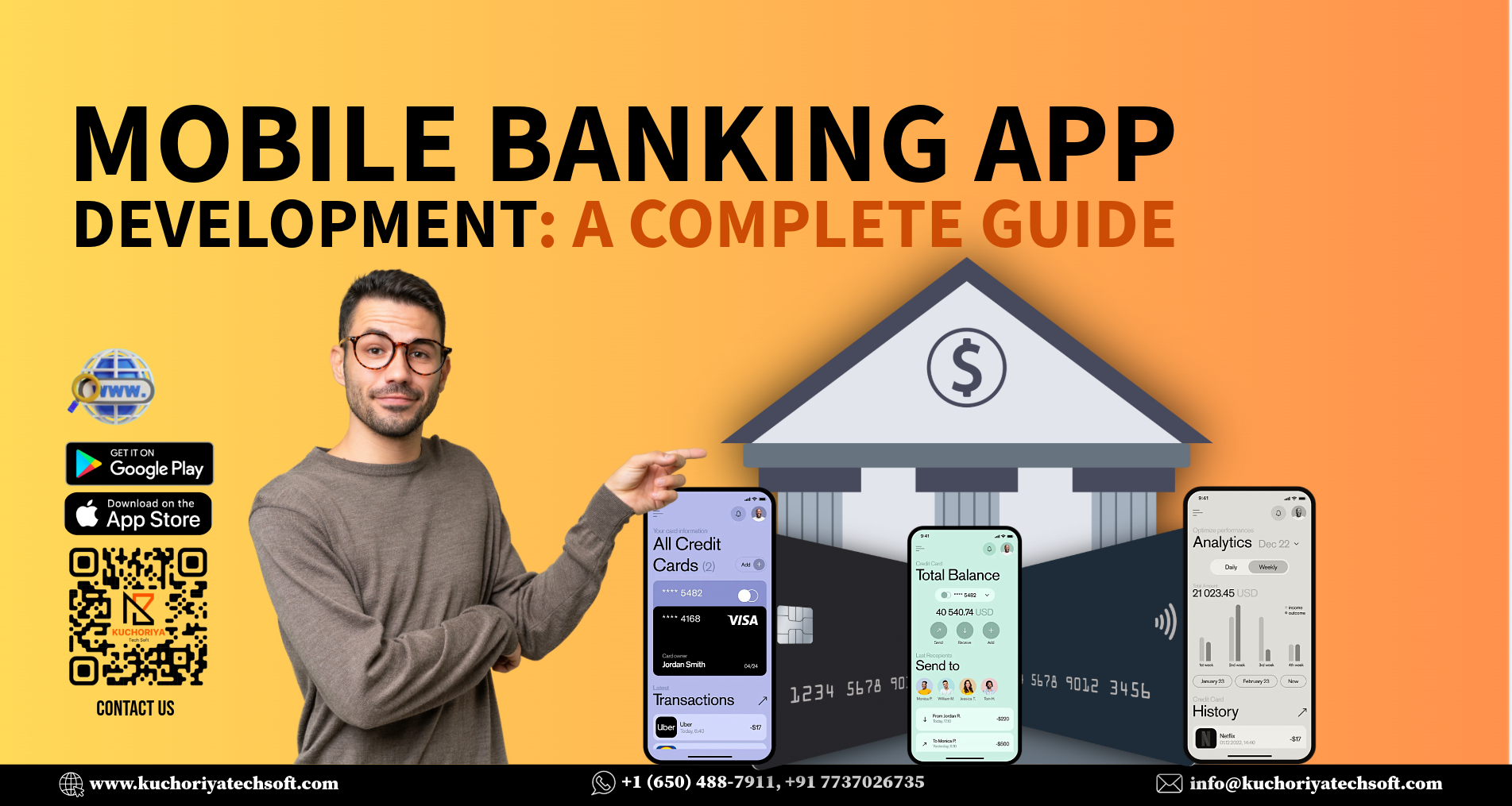Courier Delivery App Development: Features, Costs, and Key Insights for 2024
In today’s fast-paced world, courier and delivery services are no longer just an option but a necessity. With the rise of e-commerce, local deliveries, and on-demand services, businesses must provide quick, reliable, and user-friendly solutions to meet customer expectations. This is where courier delivery app development becomes indispensable.
As an established name in courier app development, Kuchoriya Techsoft understands the complexities and demands of building a successful app tailored to modern delivery needs. Whether you’re exploring on-demand delivery app development for your startup or scaling your logistics with a robust platform, it’s essential to stay ahead of the curve, especially as delivery app development in 2025 continues to evolve with new technologies and consumer behaviors.
In this guide, we’ll dive into everything you need to know about courier delivery app development, from key features and challenges to courier app development cost and industry best practices.
The courier delivery app market has seen rapid growth in recent years, fueled by the rise of e-commerce and the increasing demand for on-demand delivery services. These apps are critical to providing efficient and cost-effective solutions to customers while ensuring that businesses stay competitive. Whether you're building a mobile app for courier business or enhancing your logistics operations, having the right technology is key. Here’s an overview of why courier delivery apps are essential in Courier Delivery App Development in 2025 and what businesses must focus on.
- Overview of the Courier Delivery App Market
The courier service app development industry is experiencing rapid growth, driven by the expansion of e-commerce and on-demand services. With consumers expecting faster deliveries, businesses must adapt quickly, providing an efficient, seamless, and transparent delivery experience. Courier apps cater to diverse industries like e-commercelogistics, food delivery, and local couriers, each requiring tailored solutions. As of Courier Delivery App Development in 2025, the demand for these apps continues to surge, making it essential for businesses to invest in innovative, scalable, and user-centric solutions.
- The Importance of a User-Friendly Courier App in 2025
In 2025, a user-friendly courier app is essential to stay competitive in the market. An app that offers easy navigation, real-time tracking, and seamless payment processing can significantly enhance the user experience. Customers expect fast and reliable services, which can only be achieved by creating an intuitive app that simplifies the entire process, from booking a courier to receiving the delivery. At Kuchoriya Techsoft, we emphasize Courier delivery app UI/UX best practices and seamless app functionality, ensuring your app remains at the forefront of industry standards in Courier Delivery App Development in 2025.

When building a courier delivery app, focusing on key features is essential to ensure it stands out and provides real value to users. Below are the most important features that should be integrated into the app to enhance customer satisfaction, streamline operations, and keep users engaged.
1. User Registration and Profile Management
The first step in any courier app is user registration. Offering social logins, email registration, and profile management features will allow users to save personal information, payment methods, and delivery preferences. This feature ensures that customers can quickly book deliveries without needing to re-enter their details every time.
2. Real-Time Tracking and Notifications
Real-time tracking is one of the most crucial features of a delivery app. Using GPS integration, users can track the progress of their parcel, receiving push notifications about delivery status, delays, or estimated delivery time. This feature builds customer trust and helps reduce inquiries related to delivery status.
3. Payment Integration
Seamless payment integration is vital for user convenience. Offering multiple payment methods, such as credit/debit cards, digital wallets, or cash on delivery, will help meet diverse customer preferences. This flexibility ensures customers can choose the most convenient and secure payment method.
4. Route Optimization and GPS
Route optimization ensures that deliveries are made efficiently and on time. By integrating GPS technology and advanced algorithms, your courier delivery app can suggest the fastest routes for the courier, reducing delivery times and costs. It also helps in optimizing fuel usage, improving overall operational efficiency.
5. Ratings and Reviews
Incorporating a rating and review system enhances transparency and trust. Users can rate their delivery experience, helping businesses improve their services based on customer feedback. This feature also builds credibility and aids in establishing a loyal customer base.
6. Admin Panel Features
An admin panel allows businesses to monitor deliveries, manage users, and track performance. It is also an essential tool for overseeing operations, resolving issues, and managing the app’s backend. This central system ensures that the business can scale and address customer inquiries effectively.

While developing a courier delivery app, businesses often face various challenges. Below are the common hurdles and insights into how to address them effectively to ensure smooth operations and user satisfaction. This is especially critical for those investing in Courier Delivery App Development in 2025, where market demands and technology continue to evolve rapidly.
1. Logistics and Route Optimization
Efficient route optimization is challenging, particularly in urban environments with heavy traffic. Developing algorithms that can analyze real-time conditions, such as traffic data and road closures, is essential to minimize delays. Businesses need to focus on integrating real-time data to help optimize delivery routes in the most efficient way possible, a key factor in courier service app development.
2. Real-Time Tracking and Integration
Integrating real-time tracking with third-party logistics systems can be technically challenging. Ensuring that your app can handle tracking data without glitches is critical for ensuring smooth operation. Businesses must prioritize integrating reliable GPS systems and real-time tracking platforms that work seamlessly, which is a hallmark of on-demand courier app development.
3. Security and Data Privacy
Data privacy is crucial when dealing with personal and financial information. Ensuring the security of both customer and business data through encryption and secure payment gateways is a top priority. Additionally, compliance with privacy regulations like GDPR is essential to protect user data—one of the core aspects courier app development companies must take seriously.
4. Managing Delivery Times and Costs
Managing delivery windows and maintaining cost efficiency while ensuring timely deliveries can be difficult. Businesses must balance customer expectations with cost constraints and operational challenges. Effective management systems and optimization strategies can help in overcoming these hurdles, especially as expectations rise with Courier Delivery App Development in 2025.
5. User Engagement and Retention
Retaining users is a challenge in a competitive market. Offering personalized features, loyalty programs, and engaging interfaces can help in retaining customers. Regular updates and improvements to the app based on user feedback also contribute to long-term user satisfaction. Following Courier delivery app UI/UX best practices ensures your app stays relevant and competitive in the market of user-friendly courier apps.
While developing a courier delivery app presents several challenges, the right strategies and technologies can overcome these obstacles. Below are some effective solutions businesses can adopt to address the most common issues and ensure a smooth and effective app experience. These practices align with standards followed by every successful courier app development company.
1. Advanced Route Optimization Algorithms
To address route optimization issues, implement advanced algorithms that analyze real-time data, considering factors such as traffic, weather, and distance. This ensures timely and cost-effective deliveries. Additionally, machine learning models can improve the accuracy of route predictions over time.
2. Real-Time Tracking Solutions
Utilizing advanced GPS technology and integrating real-time tracking solutions will allow users to see where their packages are at any given moment, reducing customer anxiety and enhancing satisfaction. Real-time tracking with push notifications ensures customers are kept in the loop, fostering trust in your service.
3. Enhancing App Security with Encryption and Secure Payment Gateways
Incorporate encryption protocols to secure sensitive data and use secure payment gateways like Stripe or PayPal to ensure that financial transactions are protected. This prevents fraud and assures users that their information is secure.
4. Data Analytics for Managing Delivery Times and Costs
Use data analytics to monitor delivery performance, predict delays, and optimize delivery routes. This can help businesses make data-driven decisions to reduce costs while maintaining service quality. By leveraging historical data, businesses can forecast demand and optimize operational processes.
5. Implementing Loyalty Programs for User Retention
Develop loyalty programs that reward repeat customers with discounts, exclusive offers, or free deliveries. This will increase engagement and customer retention. Offering promotions and personalized deals can help businesses maintain customer loyalty in a competitive market. These features are essential in building user-friendly courier apps that promote repeat usage.
Developing a courier delivery app can cost somewhere between $8,000 and $25,000. The final courier delivery app development cost will vary depending on a number of important criteria. Features, functions, complexity, size, needs, infrastructure, development team, and deployment platforms are some of the crucial elements. It also includes extra expenses for things like upkeep, security assessments, design, integration testing, and more.
If you're working with a reliable courier app development company, they will help estimate these costs transparently and tailor the app based on your business goals. Engaging with the best courier app development services ensures higher ROI and long-term performance.
| Courier Delivery App Development | ||
|---|---|---|
| Development Type | Estimated Cost | Development Time |
| Basic App Development | $8,000 - $13,000 | 3 to 5 Months |
| Mid-Complex App Development | $13,000 - $19,000 | 5 to 8 Months |
| High-Complex App Development | $25,000+ | 9+ Months |
Therefore, we present the cost table so that everyone can easily grasp the cost and rapidly see the complexity of their app and cost estimation:
15% to 20% of the total courier delivery app development cost goes toward upkeep for courier delivery apps. Numerous elements, including domain renewal, licensing costs, user support, hardware or software, networking, and security limitations, might affect the cost of maintenance and services. Working with expert courier and logistics mobile app developers can ensure these ongoing costs are well-managed with scalable solutions.
To build a courier delivery app that stands out in the market, businesses must select the right technology stack. Theright courier app development company will guide you through the best tech options for performance, scalability, and cost-efficiency. Here’s a breakdown of the most essential technologies for building a high-performance app.
1. Front-End Technologies
For front-end development, popular frameworks such as React Native, Flutter, and Angular offer cross-platform support, enabling you to create apps for both iOS and Android with a single codebase. This reduces development time and costs and is commonly used by the best courier app development services.
2. Back-End Technologies
For back-end development, Node.js, Ruby on Rails, and Python Django are ideal choices for building scalable, high-performance apps. These technologies support a wide range of functions such as real-time tracking, payment integration, and notifications, all of which are essential features built by professional courier and logistics mobile app developers.
3. Database Technologies
Choosing the right database is critical for ensuring that your app can store and process large amounts of data efficiently. MongoDB, MySQL, and PostgreSQL are popular choices for courier apps. They provide a reliable and scalable solution for managing user data and logistics operations, which any leading courier app development company will recommend.
4. APIs for Integration
Integrating third-party APIs for features like real-time tracking, payment gateways, and maps is essential for enhancing app functionality. Popular APIs include the Google Maps API for routing and location services and the Stripe API for secure payment processing.

Developing a courier delivery app involves multiple stages, from initial research to the final launch. Below are the essential phases to successfully develop and launch your app.
1. Idea Validation and Market Research
Before starting development, it is important to validate your app idea. Conduct market research to understand your target audience, competitors, and potential challenges. This phase ensures you’re building a product that meets real market needs.
2. Prototyping and Design
Once you’ve validated your idea, it’s time to create wireframes and prototypes to visualize the app’s design. Ensure the UI/UX is user-friendly, with easy navigation and clear calls to action.
3. Development and Testing
During the development phase, your app will come to life with all planned features implemented. This stage is where custom courier app development takes full shape. The testing phase follows, ensuring all features work as expected and are bug-free.
4. Launch and Marketing Strategy
After thorough testing, the app is ready for launch. Create a marketing strategy to drive user acquisition and retention. Social media campaigns, influencer collaborations, and promotions can help spread the word. If you're working with a courier app development company in USA, they’ll often assist with post-launch support and app store optimization to maximize visibility.
Selecting the right development partner is crucial to ensuring that your courier delivery app is built to meet your business needs and stands out in a competitive market. If you’re considering courier app development company in Canada or globally, focus on those with logistics app expertise.
- Factors to Consider When Selecting a Development Company
Look for companies with a proven track record in mobile app development and experience in building logistics apps. Ensure they offer a transparent development process and have good client testimonials. Choosing a trusted courier app development company will also help minimize risk and ensure timely delivery.
- The Role of Expert Developers and Designers
An experienced team of developers and designers is crucial for creating an app that performs well and provides an exceptional user experience. Choose a company like Kuchoriya Techsoft, which has expert developers who understand the nuances of the delivery industry and specialize in custom courier app development across various regions including the USA, UK, and Canada.
The courier delivery app market is competitive, and creating an app that stands out requires understanding both the features that customers value and the challenges businesses face. By partnering with Kuchoriya Techsoft, you can create a solution that not only meets but exceeds customer expectations. Focus on security, real-time tracking, and effective route optimization, and make sure your app is designed with user experience in mind. Whether you need a driver app for courier services or a complete logistics solution, we’ve got you covered.
Let’s Bring Your Vision to Life!
At Kuchoriya Techsoft, we’re excited to hear about your project and help turn your ideas into reality. Whether you're looking to develop a cutting-edge courier delivery app or seeking expert advice on the latest mobile app technologies, our team is here to guide you every step of the way.
We understand the challenges that come with creating innovative, user-friendly courier apps, and we’re ready to help you overcome them. Connect with a team trusted as a top courier app development firm in Canada and courier app development company in USA, serving businesses across the globe including with courier delivery app developers in UK.
Reach out to us today, and let’s start a conversation about how we can work together to build an app that delivers outstanding results.
Don’t wait, connect with us now and see how we can take your business to the next level!
Q. How much does it cost to develop a courier delivery app?
A. The cost of a courier app depends on its complexity, features, and development location. A basic app typically costs between $10,000 to $25,000, while advanced apps with extensive features can exceed $50,000.
Q. How long does it take to develop a courier app?
A. The development timeline varies. A simple app may take 3–4 months, while feature-rich apps can take 6–12 months. The duration depends on the app’s design and complexity.
Q. What features are essential for a courier delivery app?
A. Core features for courier apps include real-time tracking, payment integration, route optimization, and an efficient admin panel. These features enhance user experience and operational efficiency.
Q. How can I ensure the security of my courier app?
A. To ensure app security, implement end-to-end encryption, secure payment gateways, and compliance with data protection laws like GDPR. These measures protect user data and build trust.
Q. How can I monetize my courier delivery app?
A. Popular app monetization strategies include delivery fees, subscription plans, and advertising. Partnerships with businesses for bulk deliveries can also generate consistent revenue.
Q. What challenges might I face during courier app development?
A. Key challenges include logistics management, real-time tracking integration, and ensuring user engagement. Choosing an experienced development partner helps tackle these effectively.
Q. What technology stack is best for courier delivery apps?
A. The ideal technology stack includes frameworks like Flutter or React Native for the front end, Node.js for the back end, and Google Maps API for tracking and navigation.
Q. Why should I choose Kuchoriya Techsoft for my courier app?
A. At Kuchoriya Techsoft, we specialize in logistics app development with expertise in building scalable, secure, and user-friendly apps tailored to your business needs. Contact us today to start your project!
HIRE A TOP SOFTWARE DEVELOPMENT COMPANY
We are all over the world
United State
9765 keystone court, Clarence, NY 14031 , USA, +1 (650) 488-7911
Canada
1100 Caven St., Suite PH11, Mississauga, ON L5G 4N3 Canada , +1 (416) 726-4662, +1 (650) 488-7911
Brazil
Bispo César da Corso Filho, 1266, San Carlos, São Paulo, Boa Vista, Brazil, 13575-331
South Africa
12 IbisWay, Sunnydale Fish Hoek 7985 Western Cape, South Africa, +27824507091
Spain
The Fir Tree 119 El Olmillo Residential Area Loranca de Tajuña 19141 Guadalajara, Spain
UAE
Building A2 DDP - Dubai Silicon Oasis - Dubai - United Arab Emirates
Italy
Viale dell'Esperanto, 71, Formia, Italy, Lazio IT
Singapore
01-08 50 Ubi Cres, Ubi TechPark, Singapore, 408568
Hong Kong
Tower 2, Silvercord, Rm 907, 9F, 30 Canton Rd, Tsim Sha Tsui, Hong Kong
Australia
Unit 14G, 3 darling point road, darling point, Sydney, NSW, Australia, 2027
India
C-15, 1st floor, Mahalaxmi Marg, Behind World Trade Park, Malviya Nagar, Jaipur, Rajasthan - 302017












































